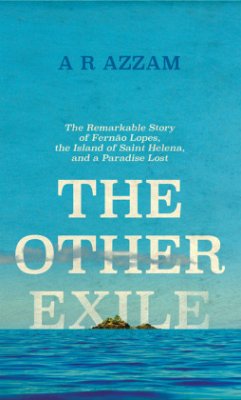The first known inhabitant of St Helena - long before Napoleon - was a 16th-century Portuguese renegade.
In 1506 Fernão Lopes, a member of his country's minor nobility, travelled to Goa in search of honour and wealth. There he converted to Islam, married a Muslim, fought his former countrymen, and was eventually captured - his nose and hands publicly cut off for treachery. Eventually sailing for home, he jumped ship at St. Helena, becoming the island's first inhabitant, with only a black cockerel for company.
News of Lopes reached the King of Portugal. Picked up by a ship sent especially for him, Lopes so impressed the King, and the Pope in Rome, that he was granted one wish. He requested his return to St Helena.
Based on brand new research by A R Azzam, author of the acclaimed Saladin (Longman, 2007), The Other Exile is at once a historical adventure story and a meditation on solitude. It is a story about redemption in one of the darkest periods in Europe and the tale of the haunting relationship between man and wild nature.
In 1506 Fernão Lopes, a member of his country's minor nobility, travelled to Goa in search of honour and wealth. There he converted to Islam, married a Muslim, fought his former countrymen, and was eventually captured - his nose and hands publicly cut off for treachery. Eventually sailing for home, he jumped ship at St. Helena, becoming the island's first inhabitant, with only a black cockerel for company.
News of Lopes reached the King of Portugal. Picked up by a ship sent especially for him, Lopes so impressed the King, and the Pope in Rome, that he was granted one wish. He requested his return to St Helena.
Based on brand new research by A R Azzam, author of the acclaimed Saladin (Longman, 2007), The Other Exile is at once a historical adventure story and a meditation on solitude. It is a story about redemption in one of the darkest periods in Europe and the tale of the haunting relationship between man and wild nature.








